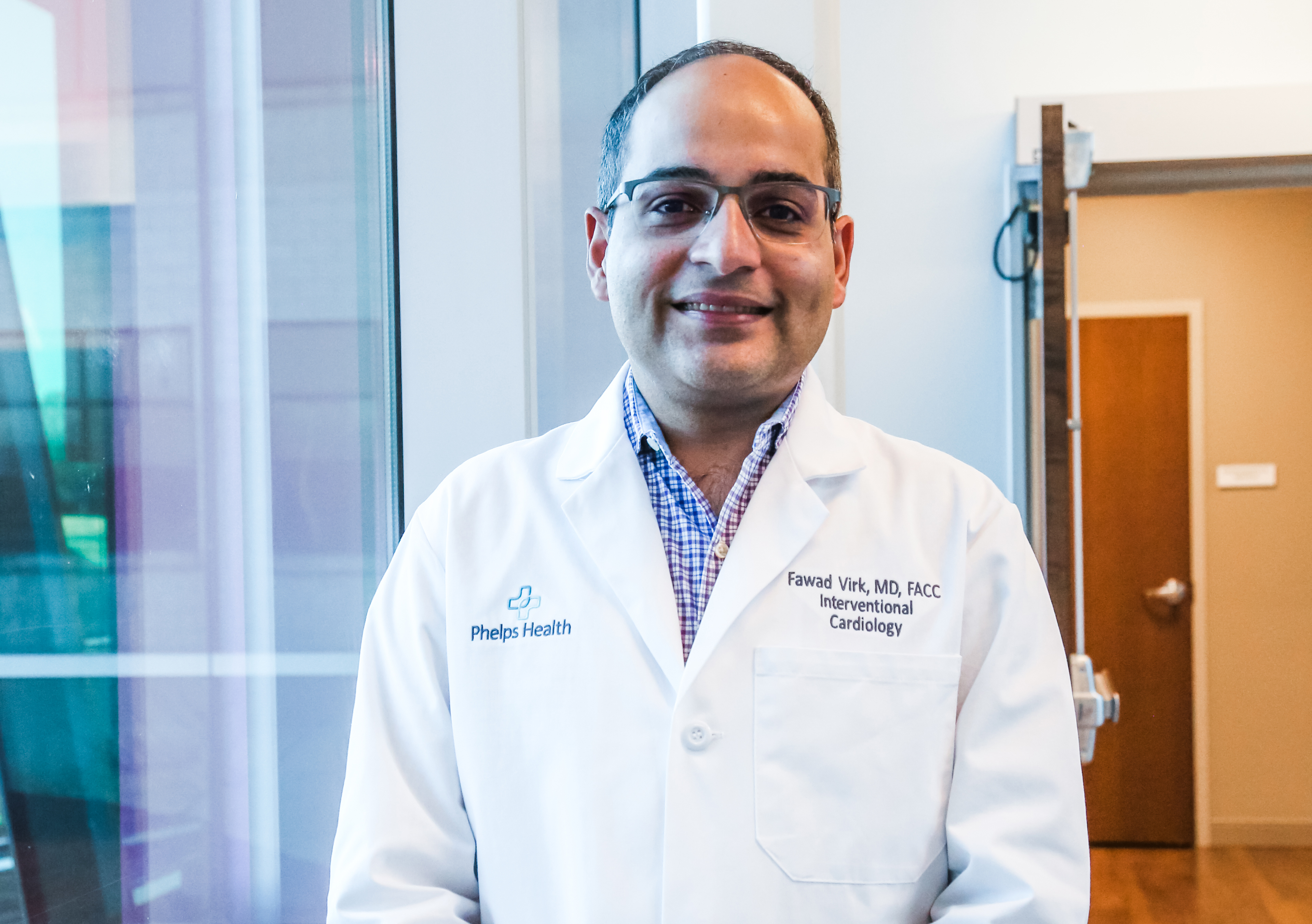
Published on February 9, 2023
Read Time: 2 Minutes
The following Q&A is provided by Phelps Health Cardiologist Fawad Virk, MD, FACC.
Q: What is a heart attack?
A: A heart attack occurs when the flow of blood in arteries to the heart is clogged. This blockage can lead to heart muscle damage. If left untreated, the heart muscle becomes weak and cannot pump blood to the rest of the body. Not all heart attacks are fatal.
Q: What are the most common heart attack symptoms?
A: Signs of heart attacks typically include the following:
- Chest discomfort/pain/tightness/burning
- Shortness of breath
- Pain in the neck, jaw or arm (usually on the left side)
- Dizziness
- Nausea and/or vomiting
- Excessive sweating
Q: Do heart attack symptoms differ between men and women?
A: For both men and women, the most common heart attack symptom is chest pain or discomfort. Women, however, also may have shortness of breath, nausea and vomiting, and back or jaw pain.
Q: What steps can I take to prevent a heart attack?
A: To lower your risk for a heart attack, consider these healthy lifestyle habits:
- Quit smoking
- Eat a healthy, balanced diet
- Stay active: get plenty of exercise
- Get a good night’s sleep (7-9 hours per night)
- Maintain healthy cholesterol levels, blood pressure and weight
- Avoid – and learn how to – manage stress
Q: What procedures for a heart attack are performed at Phelps Health?
A: Phelps Health has two state-of-the-art cardiac catherization labs, specialized rooms where tests and procedures are performed to diagnose and treat cardiovascular diseases (diseases involving the heart and blood vessels). In the event of a heart attack, Phelps Health cardiologists can perform a heart catheterization, where we place stents (small, wire mesh tubes) in the artery/arteries to open any blockage(s). If someone is having a major heart attack and is in cardiogenic shock (where the heart cannot pump enough blood and oxygen to the brain and other vital organs), we can place an artificial heart pump. We also have a device called a penumbra, which helps us remove blot clots from arteries. If a patient needs an emergent pacemaker, we can place those devices, as well.
For patients with angina (chest pain due to reduced blood flow to the heart), who have blockages but have not suffered a heart attack, we have devices to break up calcium and place stents. We also can perform procedures to check and open blockages in leg arteries.
Don’t Delay Care
If you or a loved one has chest discomfort, especially with one or more of the other signs of a heart attack, call 911 or seek emergency care immediately. For non-emergent heart concerns, call the Phelps Health Heart and Vascular Center at (573) 308-1301.